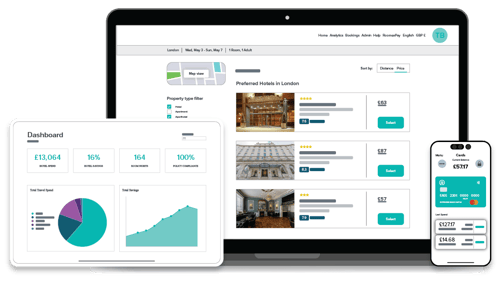It was only a decade or so ago that if you wanted to talk with someone, you’d just walk over to their desk. The pandemic has completely changed that dynamic. Now a meeting doesn't mean coffee and whiteboarding, but a Zoom link or phone call.
Being able to lead remotely is becoming an increasingly important skill and not everyone understands the changes that need to be implemented.
Why is better leadership with remote employees important?
Despite the fact that more day-to-day work and collaboration is likely now done virtually than in-person, people still strive to have a connection with their co-workers. In fact, 93 percent of people still strive to have their colleagues view them in a positive light, the Harvard Business Review (HBR) reported.
It’s one of the examples where face-to-face relationships are still important in establishing and nurturing trust – which is a critical aspect of leadership. Employees don’t want to be left to their own devices, regardless of whether they’re working from home or on a client site. There’s still an underlying need to connect with people on a personal basis and a company’s leadership needs to reflect that.
Nowadays, these relationships are difficult to come by. Sometimes, like in the case of company-mandated events, they can even feel contrived. The instances to create the bonds that support a healthy workplace culture and a strong relationship with senior managers are becoming fewer and farther between.
Poor leadership doesn’t just affect relationships between employees; it can impact the company’s financial stability. Ineffective leadership was tied to a loss in roughly 7 percent of the average company’s annual sales figure, according to GBS Corporate Training. This is due to how closely leadership is tied to company culture, productivity and employee turnover.
How to be a better leader to remote employees
With the potential negative side effects of ineffective leadership to remote employees in mind, it’s time to take a look at the bright side: the fact that you can still improve your efforts today.
We’ve rounded up three ways that you can build strong bonds with your team members and exhibit high quality leadership skills, wherever they may be working:
1. Recognise every individual’s contributions
People crave approval and constructive feedback; it always feels good to have your work appreciated. When someone is working at home or off-site, the feeling that they’re doing great work may not transfer as easily as it might if everyone were working next to each other.
Call out contributions as often as possible. Whether by the company’s intranet, through an email blast, via phone or conference call, or in person, be sure that your team member’s actions don’t go unnoticed. It’s an easy conversation to have that takes up a small amount of your time, but plays a big role in how workers view their worth to the company.
2. Ensure a fair working environment
When employees aren’t present, it’s easy for those who are to pass off delays, setbacks or any type of loss as the fault of a remote employee. This is called scapegoating and it’s something that 41 percent of remote employees admit they’ve had to face, as opposed to just 31 percent of on-site workers, according to the HBR.
While it’s never easy to figure out who to attribute blame to (if you have to at all), being aware of the fact that it disproportionately affects remote employees should help in doing so correctly. At the end of the day, you want to make sure that the way remote employees are viewed by the organisation isn’t skewed due to the fact they’re working on-site.
3. Support environments that are beneficial to working remotely
Leaders that want to make sure they’re getting the most out of their remote employees – and they’re at their happiest – will take a strong stance towards ensuring they’re in the right environment. For white collar workers this could mean ordering a standing desk for their at-home office, while blue collar workers may get the latest tools paid for by the company to make their job easier.
Don’t forget that any remote employees who are travelling for the company should be just as comfortable at night as they are during the day. Staying in poor quality hotels that are far away from the client’s worksite can cripple morale and generally sour the company’s culture. Use a business hotel booking platform to ensure you’re getting the best possible accommodation for your team with the amenities that help them enjoy their business travel a little better, like free breakfast or parking.
Originally posted October 22 2019
Updated October 19 2021
Tags:
Workforce Travel
October 22, 2019
